Revealed: More than half of Coast coppers fear for their health as they face burnout and overload
A leaked confidential survey taking the pulse of Gold Coast frontline police reveals startling results. Subscribe to read the full story and see the bombshell numbers for morale and wellbeing
Police & Courts
Don't miss out on the headlines from Police & Courts. Followed categories will be added to My News.
More than half of Gold Coast frontline cops say they fear for their health and wellbeing — and blame the Queensland Police Service upper management for not supporting them.
Morale has dipped to the point to where 39 per cent feel proud to be a copper.
The confidential findings, contained in the Working for Queensland survey for the Gold Coast District, show 30 per cent of officers felt positively engaged with their job. That’s down eight per cent from 2022 and compares to 45 per cent statewide.
The survey results were released internally to select staff in October, and have since been leaked to the Bulletin.
October was the same month the Bulletin revealed three Gold Coast police stations, including one at the state’s largest shopping centre had been quietly shut down due to short staffing.
It was also revealed crisis talks were being held at the city’s busiest station Southport, which was forced to begin closing the front doors because there wasn’t a single officer available to manage the front counter.
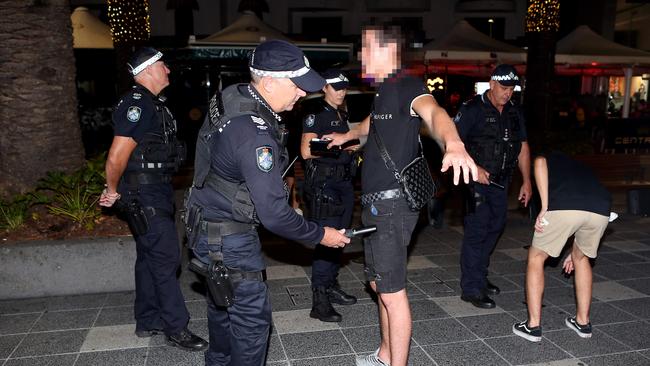
The key findings of the Coast police surveying include:
* More than half did not feel “safe and respected a work” - more than double the State average;
* 47 per cent said they felt “burned out by my work” - this compares to 38 per cent in a 2015 survey;
* 41 per cent admitted to being “overloaded with work” - the state average was 26 per cent.
* Only 37 per cent admitted to being proud to be a copper and “would tell others I work for my organisation”.
* the majority of cops would not recommend their organisation to work (54 per cent), believed management motivated them (51 per cent) and inspired them to do the best in their job (52 per cent).
* nearly half either didn’t know or agree that their work was having a positive impact on Queenslanders.
Police sources say the surveying is a horror report card for senior leadership on the Coast and exposes the human toll from a toxic workplace culture whistleblowers have been warning about for months.
The results show the majority of police believe the “executive group” and senior managers failed to show leadership (54 per cent).
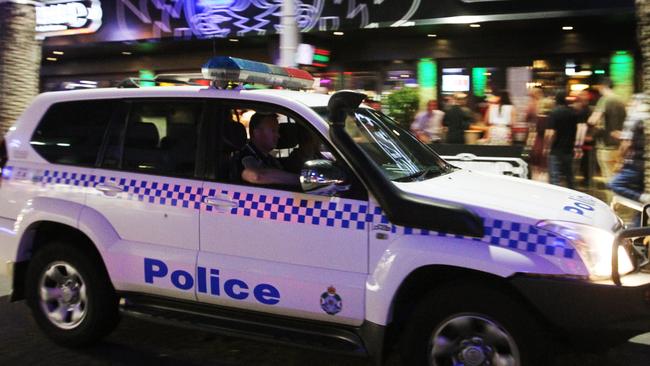
The surveying is the latest development in a Bulletin over 15 months of reporting on the ‘The Thin Blue Line’ series, where cracks in the frontline police services have been highlighted.
Associate Professor Dr Terry Goldsworthy from Bond University, a former Coast detective, said the October surveying results show the QPS is in crisis.
He said the results were “diabolical” and he believed it showcased “the incompetence” of executive leadership which had failed to map out a plan to stop burnout rates and employ more officers.
“Their own survey taken to gauge the health of the organisation says their organisation is almost on life support. In reality you just can’t say this is just a few miscreants and dissatisfied rabble raisers. This is actually more widespread - their own survey data clearly says that,” Dr Goldsworthy said.
“Clearly there is a crisis in terms of police on the frontline having faith with the executive leadership group, with only 16 per cent having a positive viewpoint of the executive leadership group.
“Whilst we now have a new Commissioner of Police, he was part of the executive group that this survey covered.”
Dr Goldsworthy said Queensland police veteran Steve Gollschewski had a lot of work to do “to bring the front line troops with him”, adding it could take at least three years to fix morale.
“There is a crisis in leadership within the QPS and this is reflected in the lack of trust by frontline officers. The new Commissioner and his executive team need to publicly outline what strategies he will put in place to fix these problems,” he said.
“When 89 per cent of the workforce are indicating that they feel overloaded with work it shows a clear resourcing problem. The current Queensland government has failed to adequately support front line police with the necessary resources to deal with a 20 year high in the Queensland crime rate.”
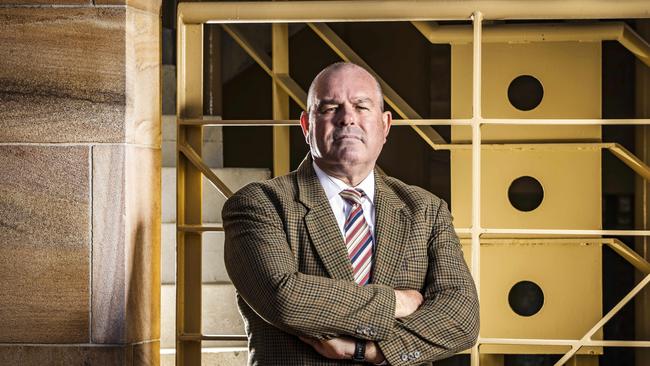
The findings of the confidential staff survey are a “vindication” according to some staff who have been sounding the alarm on what they call a growing divide between management and the rank and file.
“It’s about time the bosses stop sticking their heads in the sand and wake up,” a senior officer said.
“Our new Commissioner (Steve Gollowscheski) said he didn’t see any burnout when he visited the Coast last month.
“Who was he talking to? Where did he go? We are burning out and can’t cope – the data clearly shows it.”
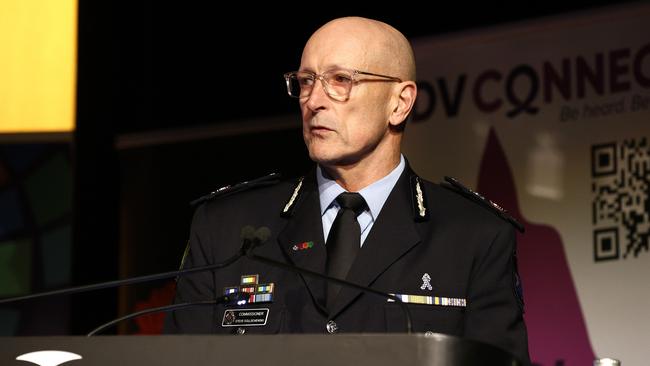
Another police source in charge of running a busy Gold Coast station feared without a change in local leadership, conditions would not improve.
“Umpteen reports, surveys and reviews have all found a lack of leadership and direction” the officer said.
“You can’t fix a problem if you don’t acknowledge it to begin with. It’s right there — in front us - punching us in the face.”
“If no one takes responsibility, hard working staff will keep walking off the job. ”
In March, following a meeting with the Gold Coast police leadership team, Assistant Commissioner Kevin Gutteridge denied any disconnect between management and staff.
“I certainly don’t think it is anywhere near what has been portrayed,” he said.
“I do understand that there are some small pockets, and that’s not just here, it’s across the state, that from time to time people do get frustrated.”
QUEENSLAND POLICE SERVICE RESPONDS
A Queensland Police Service spokesperson verbatim statement to Bulletin questions about the results of the internal police surveying follows.
“The Queensland Police Service (QPS) is committed to keeping Queensland communities safe while also making sure its workforce is healthy, safe and supported.
“While policing is an inherently challenging career, the QPS has a range of mechanisms in place to support our frontline, manage fatigue and prioritise mental health and wellbeing for all its members.
“We highly value staff participation in Working for Queensland and senior management respond to the results as a priority including reporting actions to the Executive Leadership Team (ELT). Since the results were released, the QPS has been actively working with its workforce to address issues and opportunities identified from the survey through localised action plans.
“The results are also informing strategic and operational plans across the organisation and are monitored regularly. Increasing demand for service is being experienced across the state including on the Gold Coast.
“The Gold Coast District experiences unique challenges with large numbers of international, national, and state planned events as well as having a high influx of tourists.
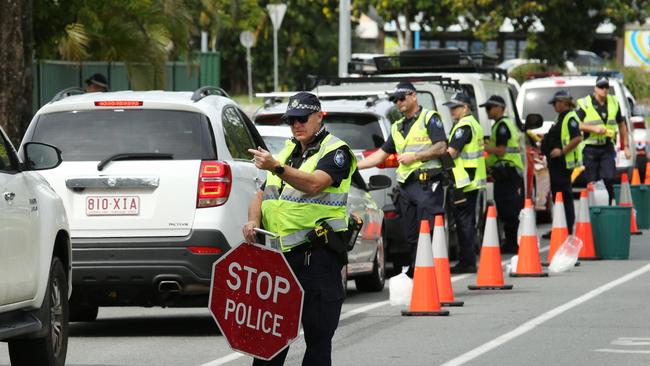
“Gold Coast Police management is constantly reviewing demand for policing resources throughout the district to ensure there are sufficient officers rostered on duty in the right areas at the right time. A regular policing presence is maintained on the southern end of the Gold Coast which is also bolstered during peak periods such as weekends. On Friday and Saturday evenings, a forward Commander and officers from Gold Coast Rapid Action and Patrols deploy to the Burleigh area to target street offences, anti-social behaviour and public order offences.
“The Gold Coast District is one of the pilot districts to review rostering practises in an effort to better align rostering with known demand, while maintaining the most optimal work/life balance for all staff.
“On the Gold Coast strategies are already being implemented by local police management to address work fatigue and increasing calls for service.
These include:
• Enhancing our health and wellbeing support to all staff;
• Redeploying positions to work units currently experiencing the most demand;
• Having district support work units partnering more closely with work units under the most pressure;
• Focussing on a borderless approach to policing resulting in resources being deployed to meet
demand and calls for service on a priority basis;
• Utilising the District Tasking and Co-ordination Centre (DTACC) to optimise operational resources
to ensure the most expedient and timely use of resources when responding to calls for service;
and
• Enhancing support for frontline staff including improvements in Crime Assessment Managers and the DTACC to reduce workloads and improve the ability of frontline staff to engage with the community, including closing the loop with victims of crime.
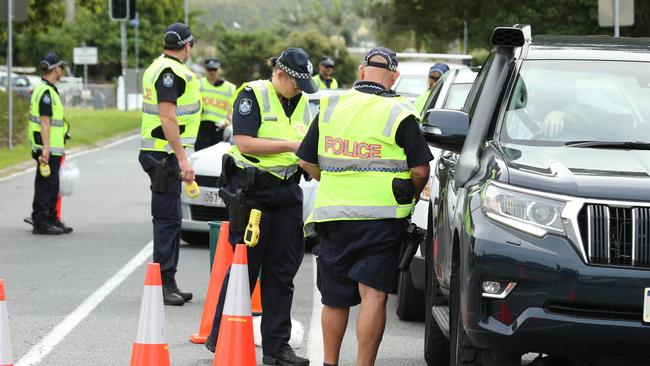
“The Gold Coast Police management team acknowledges the outstanding dedication shown by officers in working to keep their community safe every shift.
Management is focused on ensuring staff are supported and feel supported and the health and wellbeing of our members is of paramount importance.
“The QPS offers a range of internal and external options to support the mental health and wellbeing of all members.
Employees have access to a range of support services including psychologists, Peer Support Officers, Human Services Officers, Rehabilitation and Injury Management Advisors and Chaplains.
“In his first week acting in the role this year, Commissioner Steve Gollschewski met with officers from the Gold Coast District, separately from management, to hear first-hand the issues they were experiencing.
“His reflection of the meeting was that officers were open and honest about the challenges they faced. He said the officers were passionate about wanting to do better for the community through proactive policing, but were grappling with growing demand and administrative burden.
“Operation Whiskey Legion is an example of initiatives the Commissioner has implemented to enhance community safety while also supporting our local officers with a surge of specialist officers being deployed to help target high-risk offenders in the area. As part of the recent deployment, a total of 231 people were arrested on 532 charges with more than 100 victims engaged by police.
“The QPS will continue investing significant resources into supporting its workforce including additional frontline officers and staff, more equipment, and health and safety support services.
The Service is actively exploring a range of initiatives such as streamlined systems and processes, new technologies and legislation designed to reduce administrative burden and support frontline officers.
“A major police recruitment boost has seen a record number of police recruits at QPS Academies with more than 2,000 applicants also in the pipeline.
“Additional officers have been allocated to the South East Region as part of the Government’s
announcement for an extra 900 police personnel statewide over the next three years in addition to previously announced positions.”


